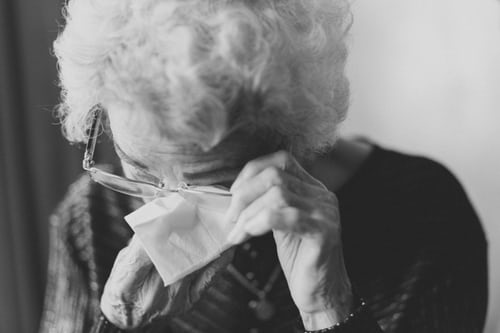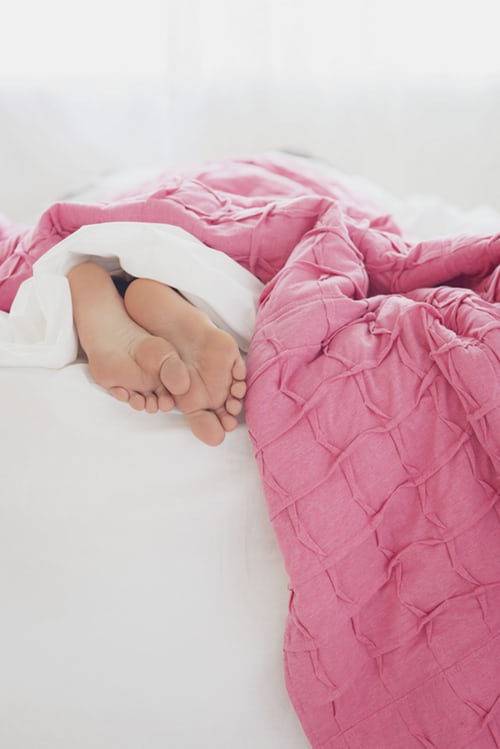Something happened to me the other day that allowed the chains of bondage to guilt, fear, anger, frustration, regret and worry to be demolished. And there are no words to describe the sense of freedom and joy I have experienced from the shedding of that weighty burden.
In the past, I have shared a little with you about the poor relationship I’ve had for years with my mother. It seems that I could do nearly nothing right in her eyes, and she harbors resentment and anger that frequently show up in her biting words and volatile reactions. She seems to look for ways I’ve failed or disappointed her.
She’s been like this most of the time I’ve known her, and I’ve heard stories about her behavior before I arrived on the scene.
She’s inferred to my husband that her problems stem from me—things I’ve said, things I’ve done wrong, things I haven’t done, ways I haven’t behaved quite like she wanted me to behave.
The history—
But I know the anger didn’t start with me. It was forged 97 years ago when she was born into a family riddled with anger and backbiting, volatile tendencies. A family destined to yell, fight, retaliate, hold grudges and physically punish offenses.
My mother was definitely not born into a family of peace. And she acknowledged that one day when I pointed it out. “No, I sure wasn’t,” she responded.
Learning that helped a little in not accepting the burdens she tried to lay on me, but it was still difficult to keep them from hurting my heart.
What changed on October 2 rocked my world, for the better.
My day of chain-breaking freedom—
My husband and I had just taken my mother to her audiologist to have her hearing aids checked, cleaned and re-set for additional hearing loss. Her moderate dementia has only complicated matters, but I’m dealing with that and cutting her slack on almost everything she says or asks me to do for her.
But that morning, on the way back to her memory care home, she wanted to know if we could stop at a drugstore to buy her some candy.
Now, normally that wouldn’t be a problem, except for two issues:
1) We had honored her request a couple of months earlier and purchased two bags of peppermints and a bag of chocolates for her. She ended up consuming the entire bag of chocolates in one afternoon without anyone at the home knowing it (she was hiding it) and got VERY sick. Sick enough that the nurse practitioner needed to be called, and I had to run to the nearest Walgreens to get the medicine and deliver it to her nurses.
2) My husband had left his car at her care home and needed to get back to it so he could go to work.
When I told her we couldn’t stop, she pinched her lips together, and the fuming started. Then the biting comments followed. My husband was nearly seething when we pulled up to her home and helped her out of the car and into the house. I didn’t hear the conversation, but he asked her what she was so mad about.
Surprise!
She was mad at me, for having and exercising so much control over her.
After he left for work, my mom got settled into her chair, and we chatted for several minutes. Then I leaned over to hug and kiss her goodbye.
She kept her arms glued to her sides as she often does when she’s upset with me. She wants me to pay for my actions. Let me know she’s unhappy with me.
I stood up again and said, “So you don’t want to give me a hug?”
Her response? “I don’t feel like it right now.”
And that’s when the light bulb went off and the burden fell from my heart.
That’s how my mom has always tried to make me pay for my misbehavior.
With tantrums.
And shaming.
Years and years of giving love and withdrawing it. Trying to keep me on my toes and performing to her standards.
Withdrawing her love when I didn’t measure up. Giving it when I was making her happy.
Something I can’t imagine doing to my children, and may God discipline me if I ever do it.
And I realized in that instant that she probably never really learned how to love unconditionally, the way a parent should love a child.
The way God loves us.
My mother never received that kind of love, never felt that kind of love, and, consequently, never could show and give it to me.
And in one split second moment, it all made sense.
My revelation released her of an expectation I always had for her; and it released me of any guilt, fear, or worry about having done wrong or about doing wrong in the future.
Obviously it doesn’t let me off the hook for being kind, attentive, friendly and loving toward her, just as God is toward me and wants me to be to others.
But it lowered my expectations from receiving anything from her to zero.
And that freed my heart to love unconditionally; the way God intends his children to display love.
Just like Him.
My mom can’t give something she’s never possessed, so I’m a fool when I do expect. It only ends up hurting me.
The Result—
I look forward to our visits with joy and without stress or agitation, since I’m no longer wrapped up in or swayed by her ever-shifting moods.
And she seems to be happier too. Our visits are good. She looks forward to them, thanks me profusely for them, and tells me how much they mean to her. We rarely argue or disagree. I’m no longer communicating defensively with her, as though waiting for the other shoe to drop—with a shield of protection encased around my heart.
And finally, when God decides it’s her time to go, I won’t be left with remorse, bitterness or regrets.
My husband, younger son and I have our suspicions that that’s the reason He’s kept her on earth all of these tough, extra years—so I can let her go with a free and joyful heart.
And not be burdened with years of unresolved pain and regret.
After years and years and years of heartache, frustration, tears, and beseeching prayers, I think I’ve finally learned what He’s been trying to teach me and was probably too weak and stubborn to figure out.
I am giddy with gratefulness.
My life has totally changed.
How about you?
Are you expecting something from someone that they can’t possibly give you?
How could acknowledging that rock your world?
Until next week, when we’ll be talking painting over deep cracks.
Blessings,
Andrea
 Andrea Arthur Owan is an award-winning inspirational writer, fitness pro and chaplain. She writes and works to help people live their best lives—physically, emotionally, and spiritually.
Andrea Arthur Owan is an award-winning inspirational writer, fitness pro and chaplain. She writes and works to help people live their best lives—physically, emotionally, and spiritually.
Andrea Arthur Owan is an award-winning inspirational writer, fitness pro and chaplain. She writes and works to help people live their best lives—physically, emotionally, and spiritually.




